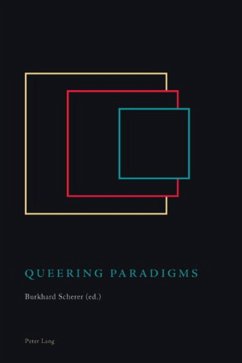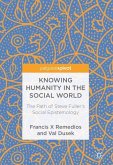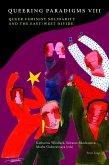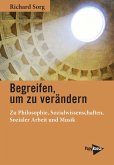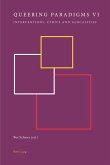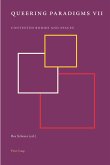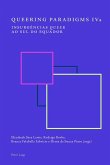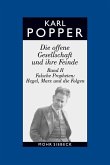This book brings together original, peer-reviewed research providing new perspectives on the status quo and challenges for the future of Queer Theory / Queer Studies.
Drawing inspiration from the conference in Queer Studies that was held at Canterbury Christ Church University in February and March 2009, the chapters offer analyses and insights into changing academic and public discourses on sexual and gender normativities within a wide multi- and trans-disciplinary scope.
Transcending the binary axis of homo- vs. heterosexuality, the book analyzes, queries, and challenges multiple overt and hidden heteronormative and gender binarist assumptions; in six larger areas, paradigmatic discourses in academia and public life are discussed: Queered Identities, Queer Politics, Queering Public Discourses, Queering the Classroom, Pop Queer, and Queer Readings.
The contributing authors represent the wide spectrum of scholarship engaged with Queer Theory, including political and social science, philosophy, history, literary criticism, cultural studies, education, psychology, and legal studies. They conversely and discursively contribute to the evaluation, reformulation, and if appropriate reclaiming of academic approaches in Queer Studies.
Drawing inspiration from the conference in Queer Studies that was held at Canterbury Christ Church University in February and March 2009, the chapters offer analyses and insights into changing academic and public discourses on sexual and gender normativities within a wide multi- and trans-disciplinary scope.
Transcending the binary axis of homo- vs. heterosexuality, the book analyzes, queries, and challenges multiple overt and hidden heteronormative and gender binarist assumptions; in six larger areas, paradigmatic discourses in academia and public life are discussed: Queered Identities, Queer Politics, Queering Public Discourses, Queering the Classroom, Pop Queer, and Queer Readings.
The contributing authors represent the wide spectrum of scholarship engaged with Queer Theory, including political and social science, philosophy, history, literary criticism, cultural studies, education, psychology, and legal studies. They conversely and discursively contribute to the evaluation, reformulation, and if appropriate reclaiming of academic approaches in Queer Studies.

